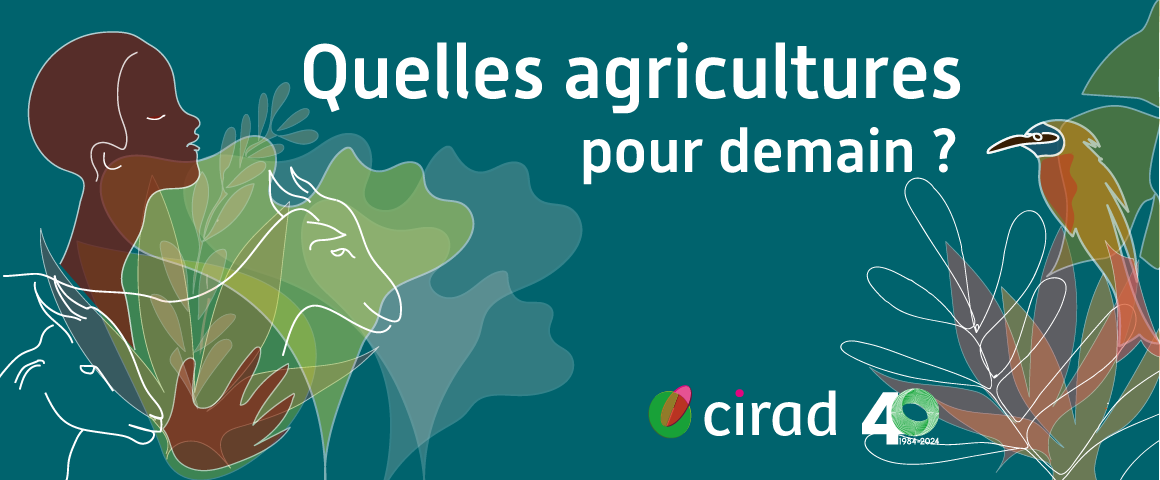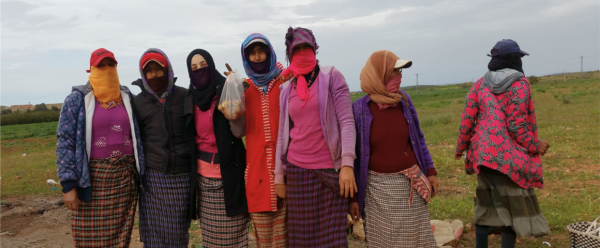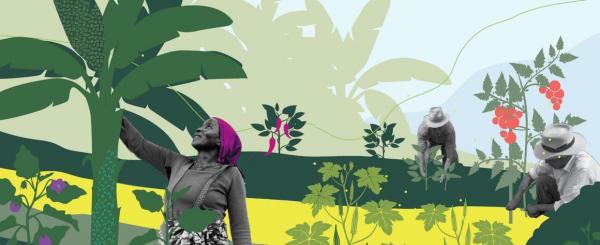Just out 30 January 2026
- Home
- CIRAD news
- News
- PODCAST | Season 5, farming systems of the future
"What will the farming systems of the future look like?" | Season 5 of the CIRAD podcast

The six episodes of season 5 "Farming systems of the future" are being streamed every Friday from 18 October 2024 (in French).
Listen via our website, or on Acast, Spotify, Deezer, Apple Podcast, or our YouTube channel.
Episode 1: Sowing biodiversity
Release date: 18 October
Until recently, crop improvement was largely geared towards increasing yields. In controlled environments, research programmes developed high-yielding varieties boosted using inputs (the Green Revolution). We are now seeing a turnaround, prompted by global change. Climate conditions are increasingly unpredictable, and attention is now being paid to plants' capacity to adapt rather than to their yields alone. There is a return to farmers' seeds, which might be less productive but are more reliable in terms of yields. In turn, this trend has raised awareness of the need to involve the "end users" of breeding programmes and crop biodiversity conservation projects: farmers, processors, distributors and consumers.
Episode 2: Land for sale
Release date: 25 October
Between 2000 and 2020, 33 million hectares of agricultural land were the object of transactions worldwide. Those transactions peaked in the early 2010s. International land observatories are now raising the alarm about a new "brown gold rush", with land acquisitions rocketing in the agricultural and mining sectors. Research has a major role to play in response to this trend: data collection and analysis, transparency as regards the transactions made, studies of the socioeconomic impacts on local people, defence of customary land access rights, and so on. The solidarity networks currently being built worldwide have enabled exchanges of information between indigenous peoples and international organizations. Beyond these land issues, the challenge for research is to reposition land that has recently changed hands within a given geographical context, to document changes and help vulnerable communities defend their rights.
Episode 3: My field contains carbon
Release date: 1 November
Agriculture has in turn been seen as a cause, and then a victim of climate change. The agricultural sector is now also seen as a source of solutions, both for reducing greenhouse gas emissions and for mitigating their impact. One of the possible solutions receiving the most attention on the world stage is the carbon storage potential of cultivated soils. Many types of certification have emerged in recent years, including the famous "carbon credits": specific certifications corresponding to the estimated amount of carbon captured in a given cultivated area. Other, broader types of certification label products made by means of sustainable farming practices. In this jungle of standards and economic incentives, research is helping to clarify the costs and benefits of each type of certification for farmers. For instance, recent studies have shown that carbon credits are not suitable in the case of smallholdings in the global South.
Episode 4: Agroecology is profitable
Release date: 8 November
Agroecology is a recent scientific concept, but a longstanding agricultural reality. In recent decades, agricultural research has demonstrated the environmental and social benefits of agroecological practices, but those socio-environmental benefits are often invisible when products come to be sold. To improve their access to markets, farmers in several countries in the global South are testing non-commercial certification systems, based on solidarity networks firmly anchored at grassroots level. Those systems include participatory guarantee systems (PGSs), which are cooperative systems enabling not just economic promotion of agroecological products, but collective management of the risks at play in environments that are under threat as a result of climate change. Research has a major role to play in legitimizing these new types of certification.
Episode 5: Local milk, white gold
Release date: 15 November
Pastoralism, which relies on herd mobility, is a widespread practice across semi-arid regions. In some cases, alongside crop farming and silviculture, it is part of a real farming system. However, it was for a long time seen as inefficient in terms of yields, and suffers from a lack of structural support. On urban markets in West Africa, for instance, local milk production cannot compete with imported milk powder. Research has pointed the finger at controversial practices on the part of certain European firms, and the lower nutritional value of such powders compared to local products. Working closely with grassroots players and reporting on the data obtained on the global stage has triggered a change in policy at European Union level.
Episode 6: Our health
Release date: 22 November
One Health is both a scientific concept and a method. The approach, for which the underlying theory was established over 20 years ago, centres on the links between human, animal and ecosystem health. However, despite the clear scientific consensus, it took a global pandemic to raise awareness amongst policymakers. Since Covid-19, numerous international initiatives aimed at putting the One Health approach into practice have sprung up. PREZODE is a prime example. In working to build epidemic early warning networks, the initiative is hoping to prevent another pandemic. In Asia, community surveillance systems are being established, with links to international networks.
The global population is set to top ten billion by 2050, which will trigger an explosion in demand for agricultural products. However, conventional production and consumption practices will be unable to satisfy that demand in a sustainable fashion. What with pollution, biodiversity loss and global warming, how can we avoid sawing the branch on which we are all sitting? This huge challenge means making radical changes to how we interact with the living world around us. The CIRAD podcast, Nourrir le vivant (Feeding the living world), takes you on a voyage to discover the territories and people working to reinvent their farming systems. Alongside scientists, crop farmers, training staff, students and livestock farmers discover the potential for change within farming systems, from food production to jobs through ecosystem health.



























